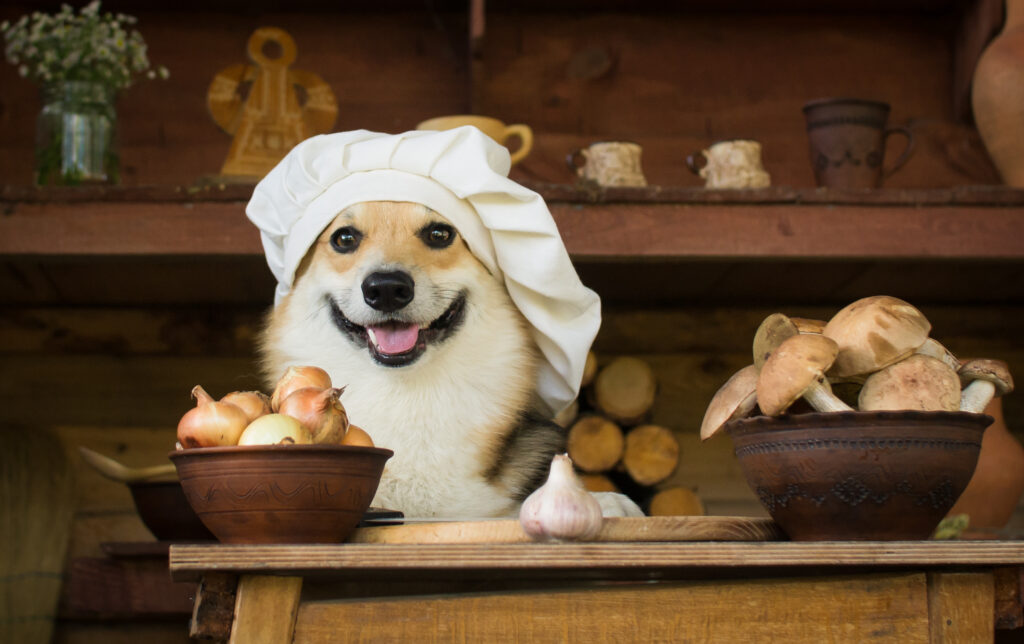As devoted pet owners, we often want to share everything with our four-legged companions, but some human foods can pose serious threats to their health. In this guide, we’ll shed light on the dangers of certain foods, with a focus on garlic, and emphasize the importance of being vigilant about your furry friend’s diet. At Town & Country Veterinary Clinic in Marinette, Wisconsin, our team is dedicated to ensuring the well-being of your pets. Read on to discover which foods to avoid and why scheduling a check-up at our clinic is a crucial step in safeguarding your canine companion’s health.

Garlic: A Potential Culprit for Canines:
While garlic might be a kitchen staple for many of us, it’s crucial to understand that it belongs to the allium family, which also includes onions and leeks. These vegetables contain compounds that can be toxic to dogs, particularly in large quantities. Consuming garlic can lead to a condition called hemolytic anemia, where the red blood cells are destroyed, causing fatigue, weakness, and, in severe cases, life-threatening complications.
Other Hazardous Foods:
Garlic isn’t the only food that can be harmful to your furry friend. Onions, chocolate, grapes, raisins, alcohol, and certain artificial sweeteners are just a few examples of items that should be strictly off-limits for dogs. Even seemingly harmless foods can cause digestive issues, toxicity, or other health problems.
- Onions and Chives: Similar to garlic, onions and chives contain compounds that can damage a dog’s red blood cells, leading to anemia.
- Chocolate: Theobromine, found in chocolate, can be toxic to dogs and cause symptoms such as restlessness, increased heart rate, and even seizures.
- Grapes and Raisins: Even in small amounts, grapes and raisins can cause kidney failure in dogs, leading to vomiting, lethargy, and loss of appetite.
- Alcohol: Dogs are much more sensitive to alcohol than humans. Ingesting even small amounts can lead to serious health issues such as coordination problems, vomiting, and in severe cases, coma or death.
- Xylitol: This artificial sweetener, often found in sugar-free gum and other products, can cause insulin release in dogs, leading to hypoglycemia (low blood sugar). Xylitol ingestion can also result in liver failure.
- Caffeine: Items containing caffeine, such as coffee and tea, can cause restlessness, rapid breathing, and heart palpitations in dogs.
- Bones: While bones are often associated with dog treats, cooked bones can splinter and cause obstructions or tears in the digestive tract. They may also break a dog’s teeth.
- Avocado: Avocado contains a substance called persin, which can cause vomiting and diarrhea in dogs.
- Dairy Products: Many dogs are lactose intolerant, and consuming dairy products can lead to digestive issues, including diarrhea.
- Fatty Foods: High-fat foods like fried items and fatty cuts of meat can lead to pancreatitis in dogs, causing abdominal pain, vomiting, and lethargy.
The Importance of Veterinary Check-ups:
Regular veterinary check-ups play a pivotal role in preventing and addressing health issues in your pets. At Town & Country Veterinary Clinic, we offer comprehensive wellness exams to ensure your dog is in top-notch condition. Our experienced team can provide personalized advice on nutrition, vaccinations, and any specific concerns you may have about your pet’s well-being.
Prevention is Key!
Remember, prevention is key when it comes to your dog’s health. If you suspect your dog has ingested any of these harmful foods, is it crucial to seek help immediately!
As responsible pet owners, it’s crucial to be aware of the foods that can jeopardize our furry friends’ health. By steering clear of dangerous items and prioritizing regular veterinary check-ups, you can ensure a long, happy, and healthy life for your beloved canine companion. At Town & Country Veterinary Clinic, we’re here to partner with you in providing the best care for your pets.
